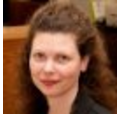The value of the social collective predates the Soviet Union and has its roots in the harsh climate and vulnerable geography mentioned earlier. Since one would simply not be able to survive in such an environment without the help of a community of people, the attitude of rugged individualism that is so admired in the West does not necessarily resonate in Russia and one cannot expect Russia's political evolution to result in a libertarian form of democracy as has existed, to varying degrees, in the United States. The prioritization of security -- social as well as physical -- is reflected not only in the overwhelming support of strong Russian leaders who stand up for Russian interests with the outside world (Putin has approval ratings over 85%) but in a recent poll by the Levada Center revealing that 61% of Russians favor living in a society that strives for social equality rather than one that strives for individual success.
For those open-minded enough to look, Russia is undergoing a gradual process of creating a post-Soviet national and cultural identity. As Paul Grenier discusses in his most recent article, Distorting Putin's Favorite Philosophers, Russia has a strong philosophical and cultural tradition to draw upon in this quest. Russia will also likely borrow some elements from the West, but they will never be a carbon copy of the United States which has a far different geographical, historical and cultural background.
(Note: You can view every article as one long page if you sign up as an Advocate Member, or higher).





